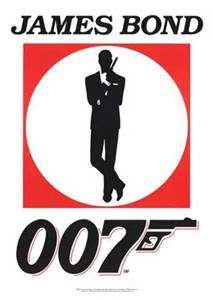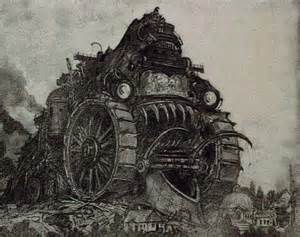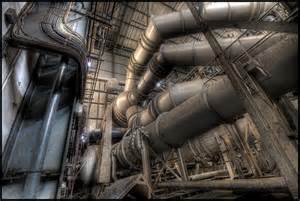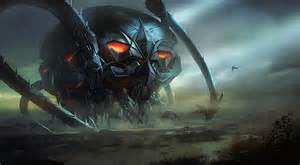James Bond Wannabe
 It came as a terrible disappointment the day I realized I would never become James Bond. Like most boys growing up, I went through a long list of potential careers. In the early days of my childhood I was influenced by the characters I saw on television; the standard cowboy, soldier, and adventurer types. None of these stayed with me for long. I was attached to one superhero for awhile. I believed then and do now that Superman was the best of a whole slew of superheroes. Too many superheroes had specialized powers that required a team of “experts” to take down the bad guys, or someone like Batman who was dependant on technology. With my limited techno skills, I would never make it out of the bat cave. Superman was an all-inclusive power machine. He required no technology and did not have to summon a gang of one-trick wonders to help him vanquish the bad guys. As long as he avoided the kryptonite and did not get entangled with Lois Lane, he could save the world whenever duty called.
It came as a terrible disappointment the day I realized I would never become James Bond. Like most boys growing up, I went through a long list of potential careers. In the early days of my childhood I was influenced by the characters I saw on television; the standard cowboy, soldier, and adventurer types. None of these stayed with me for long. I was attached to one superhero for awhile. I believed then and do now that Superman was the best of a whole slew of superheroes. Too many superheroes had specialized powers that required a team of “experts” to take down the bad guys, or someone like Batman who was dependant on technology. With my limited techno skills, I would never make it out of the bat cave. Superman was an all-inclusive power machine. He required no technology and did not have to summon a gang of one-trick wonders to help him vanquish the bad guys. As long as he avoided the kryptonite and did not get entangled with Lois Lane, he could save the world whenever duty called.
My parents did not have disposable income to purchase my own Superman costume sold in the five-and-dime stores. So before my resourceful mother sent me outside to rid the world of crime, she pulled an old blue shirt of my father’s and a worn towel out of the rag-bag under the kitchen sink, painted a red “S” on the front of the shirt, and attached the towel-cape to my shoulders with duck-head diaper pins borrowed from the stash stored on the shelf next to the crib of my much younger sibling. One must dress for the role, and my mother’s creative inspiration helped me convert discarded materials used to mop floors and wash cars into an outfit worthy of a superhero.
 I completely believed my mother’s magic to transform me. I could leap tall buildings, outrun speeding bullets, and display impressive feats of strength. And I tested this theory against the laws of nature. I would leap from the roof of our garage or the ledge of our tree house or fling myself from the tire-swing once it reached the apex of its back-and-forth. I loved hearing my cape flapping in the wind.
I completely believed my mother’s magic to transform me. I could leap tall buildings, outrun speeding bullets, and display impressive feats of strength. And I tested this theory against the laws of nature. I would leap from the roof of our garage or the ledge of our tree house or fling myself from the tire-swing once it reached the apex of its back-and-forth. I loved hearing my cape flapping in the wind.
Everything was going great and I was keeping the neighborhood crime-free until one day when I almost hung myself by my cape. I was in pursuit of two scoundrels (neighborhood friends who drew the lot of “bad guy” in our after-school, make-believe play time), who dashed into a hedge separating one backyard from another. I chose to leap the hedge assuming their intention was to come out on the other side. If my timing was right, I would fly over the hedge and crash land on top of them just as they emerged. In mid-flight I realized I had miscalculated the cunning of my foes. They had chosen to remain inside the thick hedge and escape by retracing their steps once I plopped down on the other side. I had been outsmarted. I had also not considered the possibility that my cape might get caught in the hedge, which it was, and the mid-flight yank of my snagged cape halted my forward momentum and thrust me back into the prickly branches.
My shirt and cape were shredded, my flesh was cut and scraped, and my Adam’s apple was knocked to the back of my throat. Worst of all was the damage done to my pride. The criminals had gotten away, and the world was still a dangerous place. I slogged home, a grounded mortal, threw my costume back into the rag-bag, and went into a disgraced exile as a superhero.
At the ripe old age of thirteen my heart was quickened when I saw the first James Bond film, “Dr. No.” Here was a hero who did not need superpowers to save the world. James Bond was mortal and still could rid the world of evil doers. He was everything I could aspire to. There were some moral issues in the James Bond character that could not be overlooked. My religious affiliation at that time would not allow for drinking, smoking, gambling, or womanizing. But when the world was in peril, allowances would have to be made for such character flaws. Mr. Bond was probably a good church-going lad when not called upon to bring civilization back from the brink. Once the world was safe again, I could always walk the aisle at church, make a public confession, and be restored to my faith community. Easy.
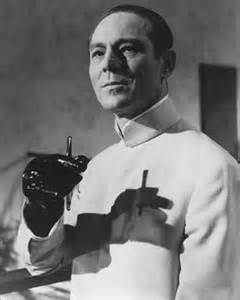
(Early in my acting career, I had a cameo role in a Movie-of-the-Week for Universal entitled “If I had a Million,” opposite Joseph Wiseman who play Dr. No in that first Bond film. I got to shake his hand, sans black metal gloves, and tell him that I thought he was a brilliant villain.)
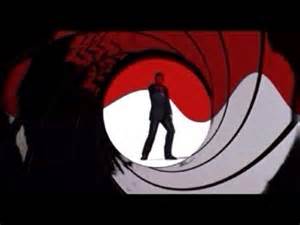 After I saw “From Russia with Love” and “Goldfinger,” I knew I had found my calling. It would just be a matter of getting into the James Bond Academy and I would be on my way. Not particularly a good student, I was unsure how to go about applying to become a “double-O.” One day Mom and I happened to be watching television and a trailer came on for “Goldfinger.” In all sincerity, I asked Mom what I needed to do to become James Bond, and without hesitation she said, “You gotta start by making better grades in school.”
After I saw “From Russia with Love” and “Goldfinger,” I knew I had found my calling. It would just be a matter of getting into the James Bond Academy and I would be on my way. Not particularly a good student, I was unsure how to go about applying to become a “double-O.” One day Mom and I happened to be watching television and a trailer came on for “Goldfinger.” In all sincerity, I asked Mom what I needed to do to become James Bond, and without hesitation she said, “You gotta start by making better grades in school.”
What had happened to the mother who had indulged my superhero fantasies? She had seen too many of my mediocre report cards and had scolded me too often for not doing my homework. Plus the thought of spinning an Armani suit from material found in the rag-bag was too daunting even for her magical powers. I needed a dose of reality and she served it up.
High achievement in school remained elusive for my entire academic career, but I made up for it by giving free rein to my imagination. In my case, imagination has covered a multitude of intellectual deficiencies. It is why I became an actor and a writer. With either skill set, I can tell stories and become any character I desire…and be paid for it.
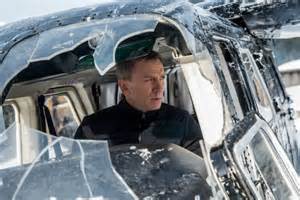
So when I take my seat in the theatre for this latest Bond film nestled between my two daughters who are diehard Bond fans, I will imagine myself saving the world one more time. It’s the least I can do.

